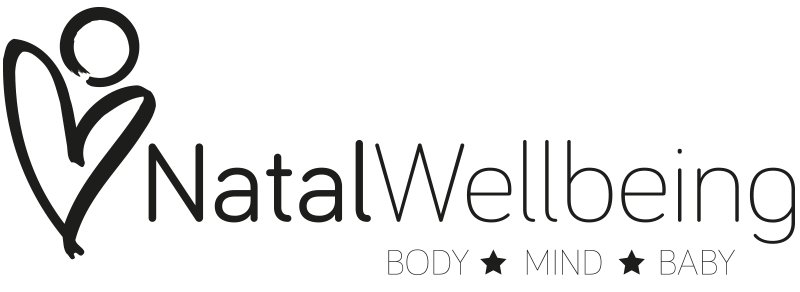Post Natal Depression and Anxiety
Hi
Here you will find a few articles, local information and websites on the topic of perinatal mental health and support for PND and anxiety. Please email the editor at [email protected] if you have any other information to share on this topic – (local support groups/good websites etc..)
Thanks!
Articles:
81% of women experience a mental health problem during and after pregnancy
But we continue to let the women down with inadequate care and understanding, says Rebecca Schiller
I expected to breeze through motherhood the second time around and, in a million little ways, it was much easier. This time I thought knew it all and did, it turns out, know a bit more than last time. I was prepared, experienced – as a doula, I was a person others called on to help them navigate the strange, sad and wonderful corners of becoming a mother. And yet, four days after my son was born, there I was sobbing down the phone to a friend, my confidence drowning in oestrogen tinged-tears that were just another leak from my damp, deflating body. These were the baby blues and, though mercifully transient for me, they felt more like the baby black-and-blue-all-overs.
At any other time I could tell you that day four is the classic time for a postnatal hormone crash but, in my milk-addled state, it felt like the screws on my hinges had loosened when I pushed my son out. I felt vulnerable, on edge and slightly estranged from my normal sense of self. I dipped briefly under the waves of tiredness, the rock-hard breasts and the overwhelming sense of responsibility. For me it was just that: a short dip until, buoyed by my excellent support network, I could raise my head in to clear air again. But for other women, having a baby can bring significant emotional and mental health challenges that they shouldn’t have to cope with alone.
A new report from the Royal College of Obstetricians and Gynaecologists (RCOG) found that 81 per cent of 2,300 UK women surveyed had experienced at least one mental health problem during or after their pregnancy. Low mood (a prolonged version of my transient baby blues) was felt by over two thirds of these women. More serious issues were reported worryingly widely. Half of those surveyed had encountered anxiety, and over a third felt they had endured some form of depression.
Despite suicide being a leading cause of maternal death, perinatal mental health provision is still patchy, with some areas providing excellent services and others floundering with woefully inadequate systems that can damage women and their families. Only seven per cent of those surveyed by RCOG were referred to specialist care and some waited over a year for treatment.
As well as sharing our experiences perhaps we also need to start asking why our journeys to motherhood are increasingly traumatic and damaging
The spectrum of perinatal mental health issues is a wide one. For many women, good support will keep us well despite the upheaval that motherhood can bring. Yet even that basic foundation of care can be too much for our stretched system, and women suffer because it has failed them. For those with pre-existing mental health issues or who develop postnatal depression or anxiety, much more is needed. Severe illnesses like postpartum psychosis, triggered by childbirth, need swift and expert diagnosis yet some women’s concerns are dismissed repeatedly with potentially devastating consequences.
Women with serious mental health conditions are sometimes too afraid of stigma or separation from their children to seek the help they need. Their fears may not always be misplaced as, in more extreme cases when doubt is cast on their capacity to make decisions, they can find themselves facing draconian measures like caesarean sections sanctioned against their wishes by the UK courts with the approval for the use of restraints. These rulings by the court of protection seem to be on the rise and, while some cases may indeed require such a fundamental removal of basic rights, the attitude to women’s autonomy in pregnancy in general, and the often heavy-handed, resource-light approach to their mental health gives rise to doubts.
But things may be about to change. The government has committed to a five year programme to transform mental health services for women in the childbearing year, backed by a £365 million fund. Perhaps more striking than this financial investment is the recognition that the only way to really improve mental health provision is to listen to those who use the service. The policy language is changing; becoming less didactic and more collaborative. While acknowledging that vulnerable women are currently being let down by the NHS, president of the RCOG, Professor Lesley Regan insists that,“only by listening to these women can we learn through their experiences and take urgent action to improve our services”.
As I look again at the RCOG survey I’m struck by just how many women’s mental health is suffering as they enter motherhood. As well as sharing our experiences perhaps we also need to start asking why our journeys to motherhood are increasingly traumatic and damaging. Becoming a mother can jolt us profoundly. But I have a hunch that a society with a maternity system and a workplace culture that values women, nurtures them as they adjust and responds to their needs can absorb some of the shock. We just need to build it.
In our local area HERTS & BUCKS there are some excellent support groups and services:
- The Lavender Team Herts
- The Wellbeing Service (see attached)
- Healthy minds http://www.healthymindsbucks.nhs.uk/
- Butterflies group on Facebook
- Buckinghamshire Family Information service – https://www.bucksfamilyinfo.org/kb5/buckinghamshire/fsd/service.page?id=KJWx4N_plr0
Please share to help others if you have found any other support services.
Useful Websites & facebook groups that share advise and support include:
- Pandas Foundation (Pre And PostNatal Depression Advice and Support) – https://www.facebook.com/PANDASFoundation/
- The Wellbeing Service – www.hpft.nhs.uk/wellbeing-service
- https://www.facebook.com/ButterfliesCommunity/
- https://www.circles.care/
- https://www.facebook.com/LotusPetalFamilySupport/


